Expert Answers to Common Back Pain Questions
Back pain is one of the most common health issues, affecting over 80% of people at some point in their lives. While many cases resolve on their own, persistent or severe pain may require medical attention. Here, we’ll answer common questions about back pain and discuss when it’s time to seek professional help.
Why Does My Back Hurt?
Back pain can stem from various causes, including:
- Muscle Strains & Spasms – Often due to overuse, improper lifting, or sudden movements.
- Herniated or Degenerative Discs – These can put pressure on nerves, leading to pain and numbness.
- Joint Inflammation & Arthritis – The spine’s joints can wear down over time.
- Nerve Compression (Sciatica) – Irritation of the sciatic nerve can cause shooting pain down the leg.
- Underlying Conditions – In rare cases, back pain can be a symptom of spinal fractures, infections, or even tumors.
“Most back pain is mechanical in nature and can improve with proper treatment. However, pain that persists or worsens over time should not be ignored. Early intervention with conservative therapies can prevent long-term complications,” says Dr. Oliver Ghalambor, a board-certified interventional pain specialist at Nortex Spine and Joint.
When Should I See a Doctor for Back Pain?
For mild back pain, start with self-care:
- Rest briefly but avoid prolonged bed rest.
- Use ice packs (first 48 hours) and heat therapy (after 48 hours).
- Take over-the-counter pain relievers like ibuprofen or acetaminophen.
- Stay as active as possible—movement helps prevent stiffness.
Seek medical care if you experience:
–Pain lasting more than two weeks
–Severe, worsening pain that disrupts daily activities
–Pain after an accident or injury
–Fever associated with back pain (could indicate infection)
–Loss of bladder or bowel control (a medical emergency)
–Numbness, tingling, or weakness in your legs or arms
For specialized back pain treatment, Nortex Spine and Joint offers advanced, non-surgical solutions to help patients regain mobility and quality of life.
What Doctor Should I See for Back Pain?
The right doctor depends on the severity of your pain and symptoms:
- Primary Care Doctor – Good for mild back pain, muscle strains, or first-time episodes.
- Pain Management Specialist – Experts like Dr. Ghalambor offer advanced non-surgical treatments such as epidural steroid injections, nerve blocks, and regenerative therapies.
- Physical Therapist – Helps with rehabilitation, strengthening, and mobility.
- Orthopedic or Spine Surgeon – Recommended for severe cases involving fractures, herniated discs, or spinal instability.
What Happens During a Back Pain Evaluation?
When you visit a back pain specialist, they will:
- Review your medical history and past injuries.
- Perform a physical exam, testing range of motion, nerve function, and muscle strength.
- Order imaging tests (X-rays, MRI, or CT scan) if necessary.
- Develop a customized treatment plan based on your symptoms.
Learn more about advanced back pain diagnostics at Nortex Spine and Joint.
What If I Don’t Want Surgery?
The good news? Most back pain cases don’t require surgery. At Nortex Spine and Joint, Dr. Ghalambor focuses on minimally invasive treatments that help patients avoid surgery while achieving long-term pain relief.
Non-surgical treatments include:
- Physical Therapy & Chiropractic Care – Helps improve posture, flexibility, and strength.
- Epidural Steroid Injections – Reduces inflammation around spinal nerves.
- Facet & SI Joint Injections – Provides targeted pain relief.
- Radiofrequency Ablation (RFA) – A minimally invasive treatment that disables pain-causing nerves.
- Platelet-Rich Plasma (PRP) Therapy – Uses your body’s own healing properties to promote tissue repair.
If conservative care isn’t effective, minimally invasive spine procedures may be considered before surgery.
Take the Next Step Toward Pain Relief
If your back pain is affecting your quality of life, don’t wait to seek expert care. Book an appointment with Dr. Oliver Ghalambor at Nortex Spine and Joint for a personalized treatment plan tailored to your needs.








